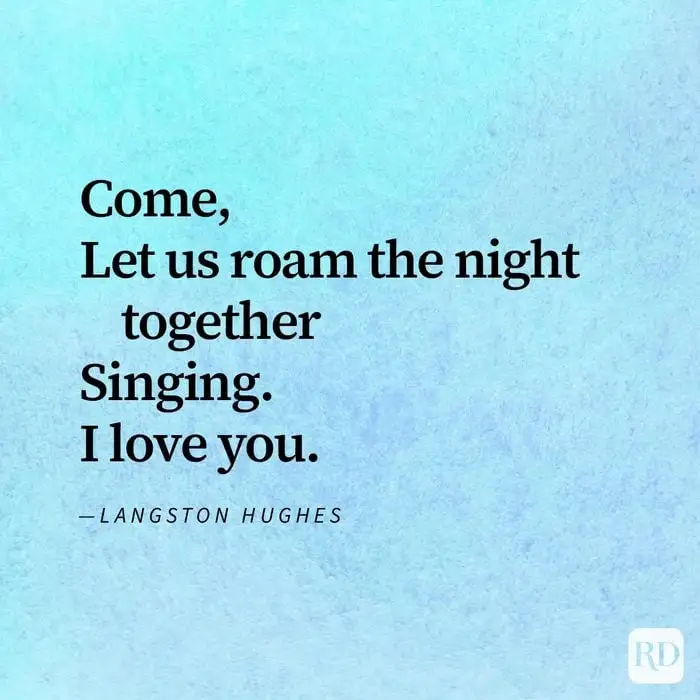Langston Hughes, a leader of the Harlem Renaissance and a great poet, captivates readers with his vivid imagery, rhythmic verse, and an unwavering commitment to social justice. Langston Hughes Poems delve into the depths of the African American experience, speaking to the soul of all who yearn for freedom and equality. In this exploration, we uncover ten of Hughes’ most powerful poems, each a beacon of hope and a testament to the resilience of the human spirit.

The Power of a Dream Deferred
“Harlem” (A Dream Deferred)
What happens to a dream deferred? This question opens one of Hughes’ most famous poems, “Harlem,” where he explores the consequences of unfulfilled dreams. Through vivid similes, Hughes portrays the potential explosiveness of delayed aspirations, a powerful reminder of the importance of pursuing one’s dreams.
The Rivers of Life
“The Negro Speaks of Rivers”
In “The Negro Speaks of Rivers,” Hughes ties the African American experience to the eternal flow of some of the world’s greatest rivers. This poem, written when Hughes was only eighteen, reflects a deep, ancestral connection to nature and history, emphasizing the strength and depth of his cultural heritage.
Joyful Defiance in the Face of Adversity
“Mother to Son”
“Life for me ain’t been no crystal stair,” a mother explains to her son in this moving poem. “Mother to Son” is a dialogue of resilience, encouraging perseverance. Hughes uses the metaphor of a staircase to symbolize life’s numerous challenges and the relentless spirit required to overcome them.
The Celebration of Identity
“I, Too”
“I, Too” is a bold declaration of self-identity. Hughes writes from the perspective of an African American asserting his rightful place in society. The poem’s strength lies in its directness and simplicity, conveying a powerful message of equality and inclusion.
Visions of a Just Society
“Let America Be America Again”
In “Let America Be America Again,” Hughes critiques the American dream. He speaks on behalf of those disenfranchised by a system that promises freedom yet delivers inequality. The poem is a call to action, to rebuild America into the land it professes to be.
The Struggle Against Injustice
“Kids Who Die”
This poignant piece serves as a powerful protest against racial injustice. “Kids Who Die” is a stark reminder of the young lives lost to societal violence and prejudice. Hughes’ uncompromising words push readers to reflect on their roles in perpetuating or combating injustice.
Celebration of African American Culture
“The Weary Blues”
“The Weary Blues” describes a musician playing blues late into the night. The poem itself takes on the rhythm of blues music, and Hughes’ use of onomatopoeia immerses the reader into the scene, illustrating the enduring spirit of African American culture through music.
A Cry for Freedom
“Freedom’s Plow”
Through “Freedom’s Plow,” Hughes celebrates the contributions of African Americans to building the nation, emphasizing that freedom is earned through hard work and determination. The poem encourages unity and collective action to achieve true liberty.
An Ode to Harlem
“Juke Box Love Song”
In this lesser-known Langston Hughes Poems, Hughes expresses his love for Harlem through the metaphor of music emanating from a jukebox. It’s a vibrant tribute to the neighborhood that nurtured his artistic genius.
Reflections on Personal Growth
“Theme for English B”
“Theme for English B” is a reflective piece in which Hughes contemplates his experiences at Columbia University. This introspective poem explores themes of self-identity and the quest for understanding across racial divides.





